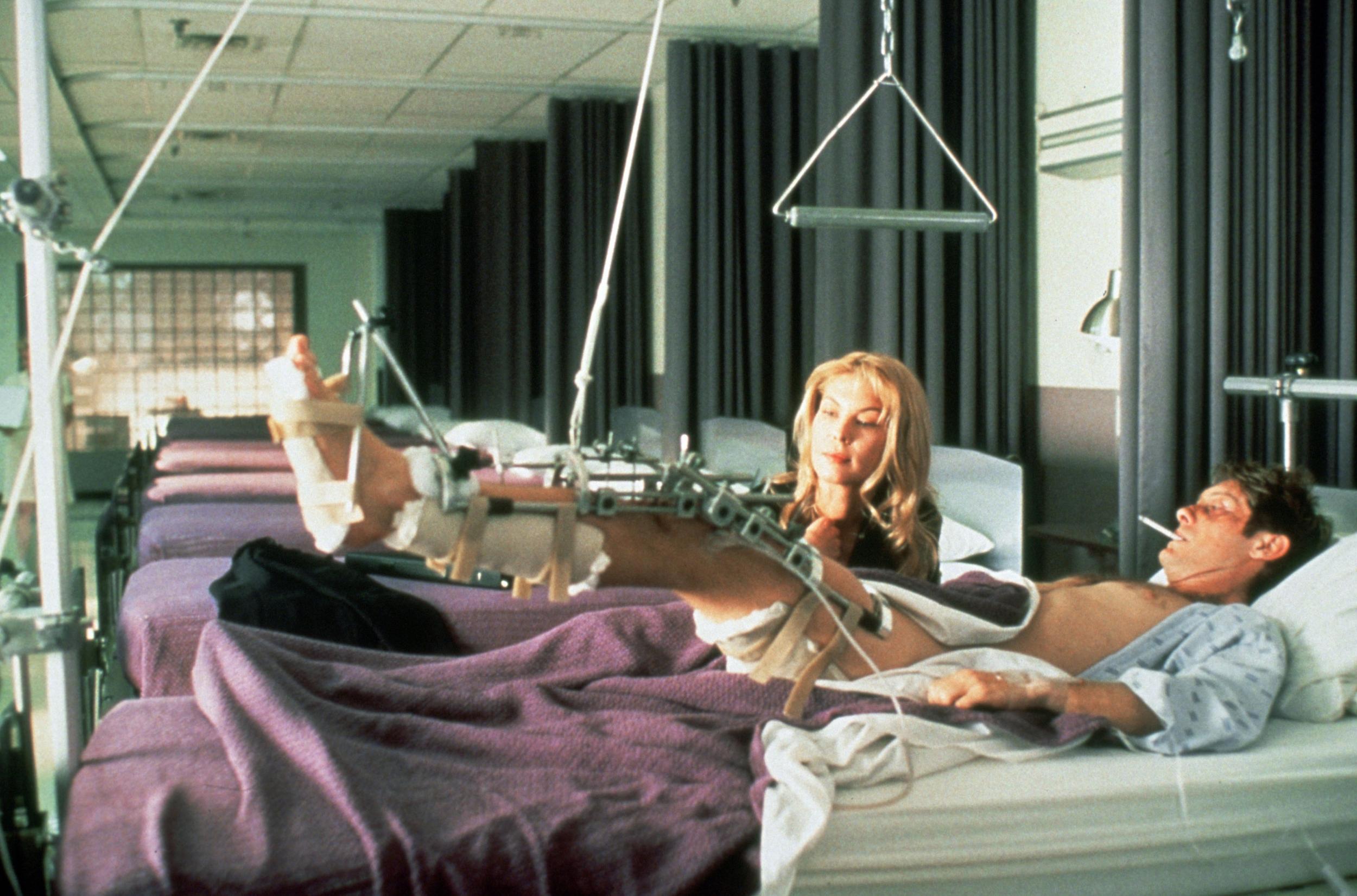How writing about JG Ballard’s most controversial novel helped me cope with becoming a single parent
The strange, violent world of the author’s most notorious work may seem like a strange place to find parenting inspiration, but for Paul March-Russell it became a thing of unexpected solace during dark times


Your support helps us to tell the story
From reproductive rights to climate change to Big Tech, The Independent is on the ground when the story is developing. Whether it's investigating the financials of Elon Musk's pro-Trump PAC or producing our latest documentary, 'The A Word', which shines a light on the American women fighting for reproductive rights, we know how important it is to parse out the facts from the messaging.
At such a critical moment in US history, we need reporters on the ground. Your donation allows us to keep sending journalists to speak to both sides of the story.
The Independent is trusted by Americans across the entire political spectrum. And unlike many other quality news outlets, we choose not to lock Americans out of our reporting and analysis with paywalls. We believe quality journalism should be available to everyone, paid for by those who can afford it.
Your support makes all the difference.A year before he died in 2009, the writer JG Ballard dedicated his memoir to his three children: they were, as he wrote, “miracles of life”. Jim, Fay and Bea were all under the age of 10 when their mother, Mary, suddenly died in 1964 while the family was on holiday in Spain.
Despite pressure to farm the children out to well-meaning relatives, Ballard refused to do so, and he brought them up as a single parent. Or rather, as he always remarked, they brought him up.
The next decade coincided with Ballard writing The Atrocity Exhibition (1970) and Crash (1973), “the vinyl and broken glass, sex ’n’ violence novels”, as Angela Carter once called them; books that continue to inspire younger artists such as this summer’s “Brat” sensation Charli XCX.
I’ve recently written a critical study of Crash, drawing on Ballard’s unpublished correspondence with his publisher Tom Maschler. Last September, just before I wrote the majority of the book, I also became a single parent.
My ex-partner’s mental and physical health had declined severely, and on the advice of mental health services, it was decided that it was no longer safe for our disabled daughter to stay with her. Our son had just started studying dance in London – as I quickly discovered, parental obligations did not end there. For several years, I had felt like a single parent, caring for two children, with a sick relative. Now it was official.
There have been positives over the past year. Most of all, my daughter and I have a closer relationship than before. But it has also felt like a never-ending carousel of shopping, cooking, cleaning, laundry, appointments, visits, phone calls, emails, form-filling, and financial juggling. This is nothing new: mothers have endured this for centuries.
But I did experience something new, for me at least, although it’s probably a familiar quality to single parenthood – loneliness. Because despite having several friends, I wasn’t able to describe the circumstances in which my life had changed and what it was now like; it seemed impolite to do so.
This feeling was exacerbated by having already left academia to support my children, which also meant that my ties to a professional network were broken. Once my daughter came to live with me, social services withdrew; I knew of no other network to whom I could turn for advice or support.
Loneliness breeds anxiety. All parents know about guilt: the feeling of never being good enough. Realising that my children were dependent solely upon me meant that I always had to be there for them; that I could never do too much for them. I’ve over-parented as a result – crazy, really, as they’re both teenagers. Or I’ve been haunted by the fear of suddenly dying, of my children effectively becoming orphans. Terrors stalk my dreams – a nightmare realm not eased by writing about a book like Crash.
Ballard once claimed that, until his short story “The Dead Time” (1977), children had not featured in his fiction. This is not true. In his introduction to Crash, Ballard wrote that “what our children have to fear is not the cars on the highways of tomorrow but our own pleasure in calculating the most elegant parameters of their deaths”.
For Ballard, this was a constant worry. The M3 was being built near to his home in Shepperton, and his children were traversing busy roads. Unlike my fears, Ballard’s were that of “a knock on the door” and of “a bobby or a policewoman come to tell me some unpleasant news. That really would have been life’s most bitter joke.”
The importance of Ballard’s children, along with the toll that writing Crash had upon him, emerges in his letters to Maschler. He asks more than once for his advance because he lacks the money to feed either himself or his children.
The ideas behind Crash consumed a seven-year period and were rehearsed in different forms before the novel: short stories, essays, interviews, an art installation, an unperformed play, and a drama-documentary.
Ballard’s personal relations became strained: he fell out with the younger writers grouped around New Worlds magazine, while the loveless marriage of James and Catherine in Crash was based upon his then fraught relationship with his long-term partner Claire Walsh. But throughout, his love and commitment to his children remained true. I find that inspirational, emerging, as it does, from the chaos of his own life.
Readers, such as the philosopher Jean Baudrillard, have been seduced by Crash’s cool narrator, also called James Ballard. But the novel draws attention to the figures who occur in the periphery of James’s narration: prostitutes, immigrants, animals, and yes, children. They appear as silent witnesses, or objects of prey, for the apocalypse that we, the adults, have consensually chosen for them. In this, Ballard’s novel speaks most disturbingly to our own times.
Paul March-Russell’s book, ‘JG Ballard’s Crash’, will be published in November by Palgrave Macmillan
Join our commenting forum
Join thought-provoking conversations, follow other Independent readers and see their replies
Comments